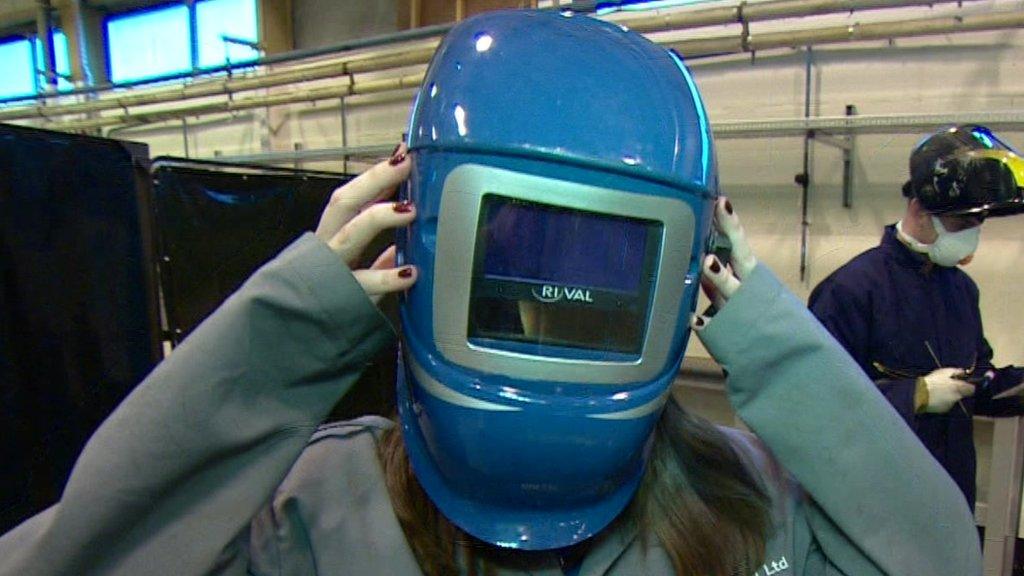Female science and engineering 'talent waste' worry
- Published
Vyvyan Evans says it is important for girls to see what is possible for them at a really young age.
The poor take-up of girls studying and then working in science, technology and engineering has been highlighted at a campaigning conference in Cardiff.
The Princess Royal met girls from nine schools at the Celebration of Talented Women event, which involves industry and higher education.
Only one in six workers in key sectors is a woman and only 12% of engineering and technology students are female.
A new report called it "a waste of knowledge and talent".
Only 20% of women science graduates went on to work in the subject areas compared to 44% of men.
The authors of Talented Women for a Successful Wales want to see:
Those schools investigated where too few girls are studying science, engineering and technology (STEM) subjects beyond GCSE.
Both universities and businesses to do more to support researchers or workers when they take career breaks or maternity leave.
More effort to get girls to take up apprenticeships in construction, planning, engineering and manufacturing technologies - where boys make up 90%.
It was commissioned by Prof Julie Williams, chief scientific adviser for Wales, who chaired a question and answer session with industry leaders at the Senedd.
"The proportion of women working in the STEM workforce is low, despite growing recognition that recruiting, retaining and promoting talented women in STEM professions would bring considerable benefits to business and the Welsh economy," said the report.
Latest figures showed that the proportion of women working in key sectors like construction, life sciences and ICT is actually lower than it was 10 years ago in Wales.
In Wales, only 25% of people in ICT are women, compared to 51% in India.
But there has been an improvement in the energy and environment sectors.
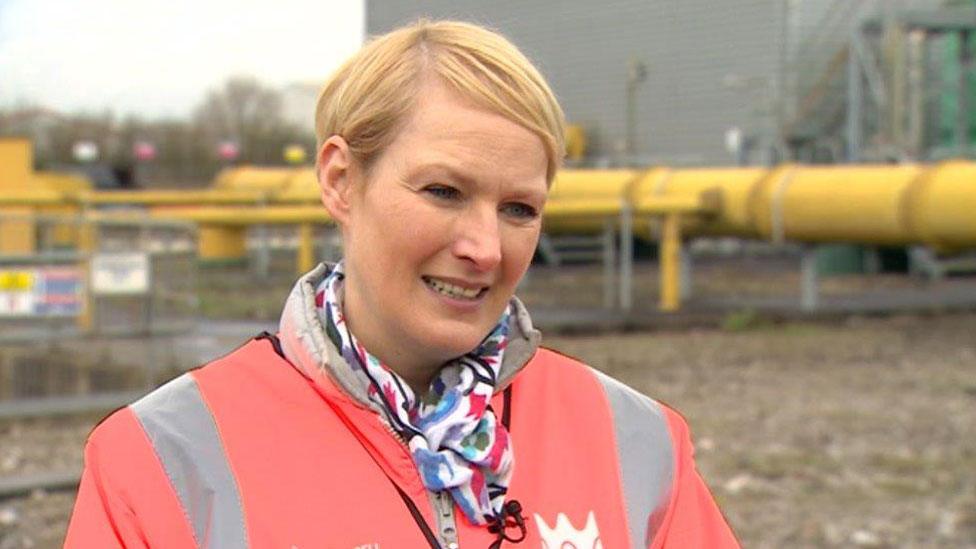
Imogen Brown is trying to get more women in technical roles with Welsh Water
Imogen Brown, head of wastewater networks at Dwr Cymru Welsh Water did not study sciences at A level. She originally went to university to do a journalism course and ended up training as a quantity surveyor while working.
"We did have some career guidance - and I was advised to become a librarian," she recalled of her school years.
Ms Brown is now in charge of a team of just under 200 people - 170 are technical staff, where only 5% are women. But in the customer service area, 75% are women.
She is trying to get more women in the technical section and more men into the customer service. She said diversity of staff improves the business and customers like it.
"If we can open people's eyes to the fantastic opportunities and how exciting and interesting they can be, we can attract a lot more people, especially girls and women," she said.
Vyvyan Evans works on the technical side for Welsh Water and was a graduate entrant.
She studied humanities at A level and then international relations and Spanish at university, before working with the Red Cross in Africa where she helped bring healthy water supplies to communities.
Ms Evans works mainly with men and said she had been really encouraged and supported.
"In my day to day role [my gender] it's not apparent - I have as much fun in my role, whether I'm male or female," she said.
"Inevitably you're treated in a slightly different way because it's often male dominated culture but that's not to say it's in a negative way or that it impacts on my work."
Fiza, Rachael and Chardonnay explain their interest in science and maths.
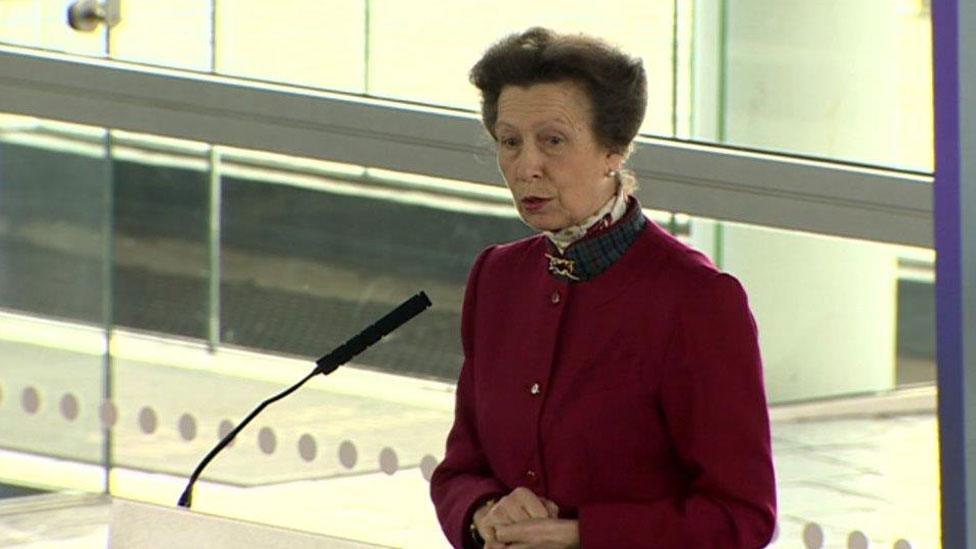
The Princess Royal spoke of the contribution already made by women in Wales
The event was organised by the WISE campaign, external, of which the Princess Royal is patron.
Swansea-born Trudy Norris-Grey, chairwoman of WISE, is managing director of worldwide business development at Microsoft in Seattle.
She said: "We do a disservice if we don't bring more girls and women into science, engineering technology and maths. It's given me a good standard of living and given me the best of times.
"There are 60,000 jobs currently unfilled in the UK - they're really good jobs and well paid.
"Girls and women could really make the most of that and we know from an organisational point of view that diversity brings better results."
Julie James, Skills and Science Minister, said the under-representation of women in the STEM workforce was a "critical issue for Wales" and encouraging more women and girls to pursue STEM opportunities and careers made "economic sense".
- Published7 January 2017
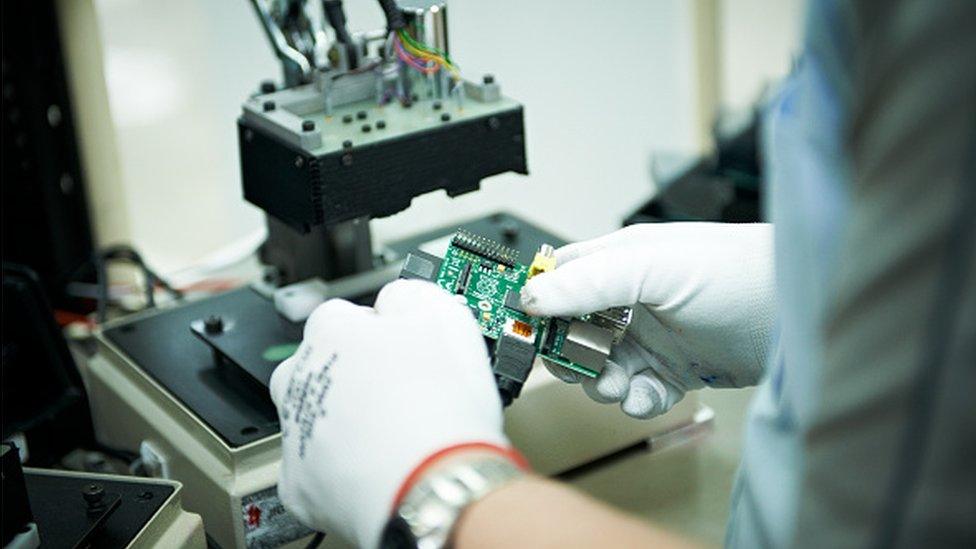
- Published8 March 2016
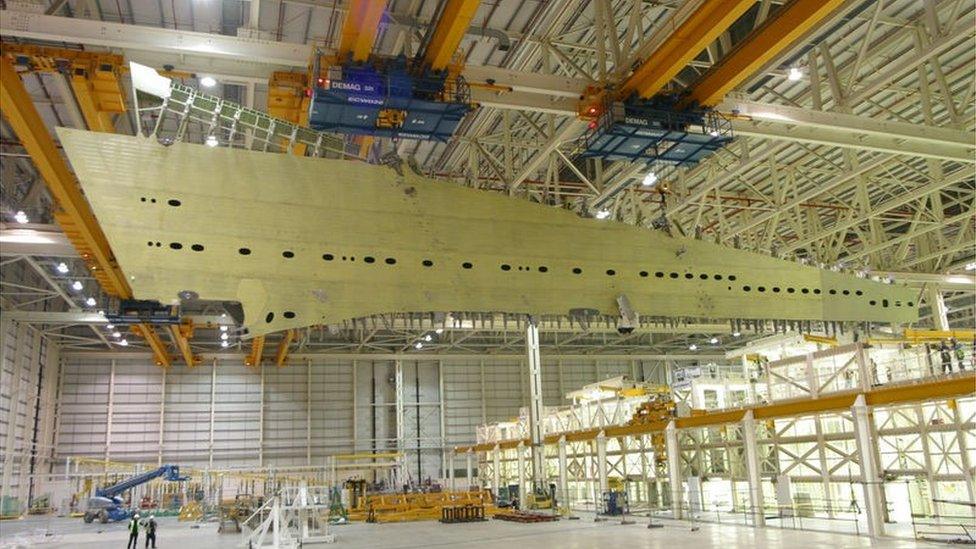
- Published8 March 2017
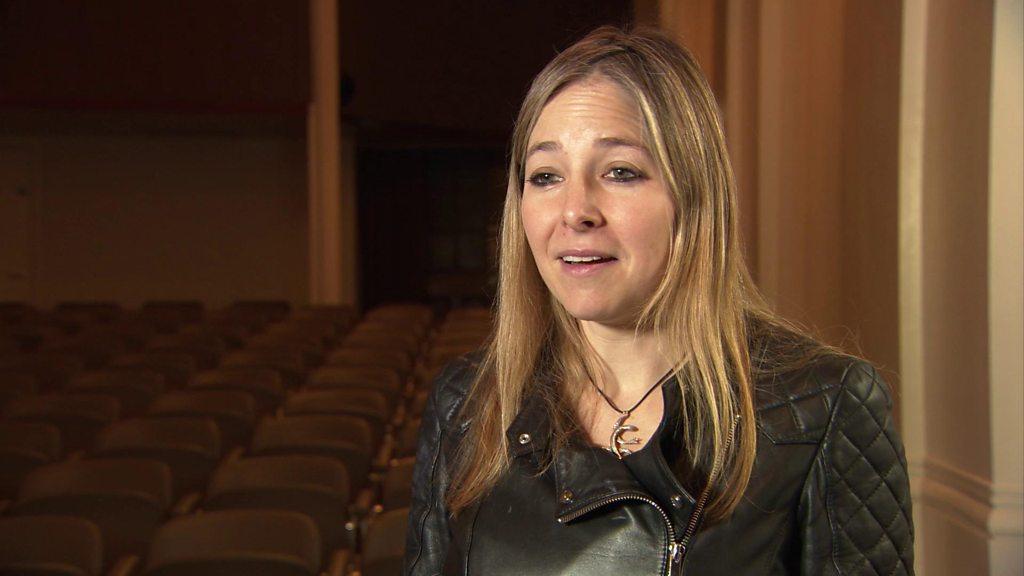
- Published27 January 2017
